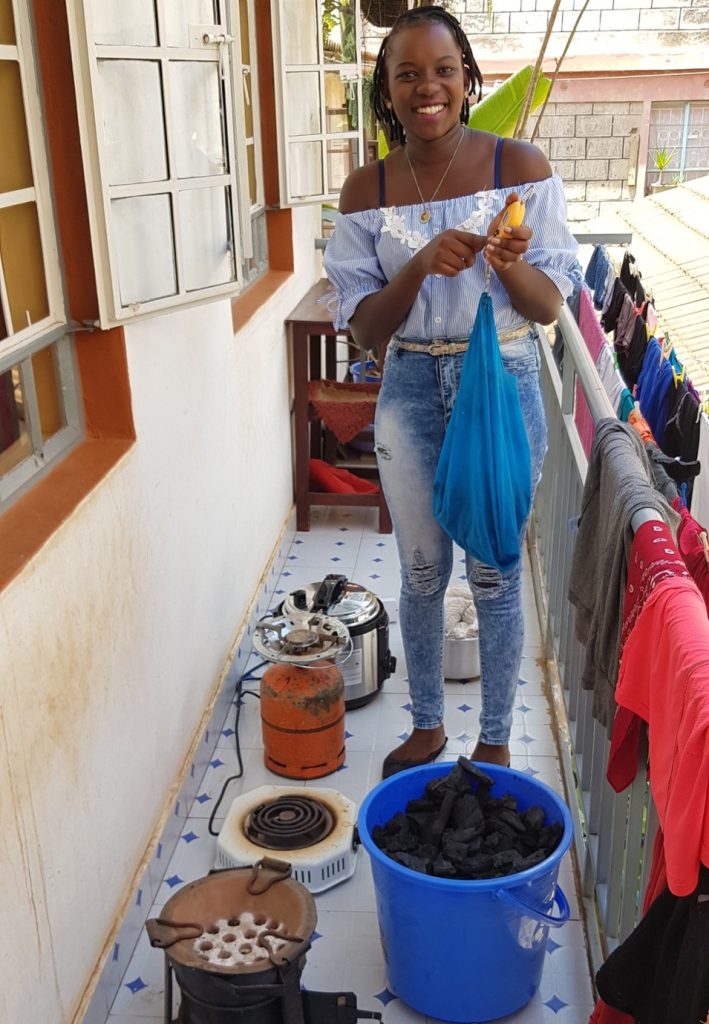- Date
- 18th July 2023
- Categories
- Controlled Cooking Test
By Jacob Fodio Todd (Gamos Ltd.), Dr Nigel Scott (Gamos Ltd.), and Dr Jon Leary (Gamos East Africa Ltd.)
Over the course of the programme, numerous MECS researchers and partners have conducted controlled cooking tests (CCTs). These tests are based on creating replicable narrative recipes and then using them to cook the same dish repeatedly in controlled conditions using different fuels to measure and compare the amount of energy used, and the cost/time. Throughout the MECS programme, the CCT protocol has been refined in the light of experience and findings from CCTs undertaken in many country contexts, specifically to tailor it to the way that modern energy-efficient appliances work. It borrows from past frameworks such as the Water Boiling Test (e.g. v 4.2.3) and Bailis’ Controlled Cooking Test Cooking Protocol, long standing methods used to measure stove performance in the clean cooking world. Many other commonly used protocols in the sector have been gathered here by our colleagues at the Clean Cooking Alliance.

However, since these were first published, there have been many new developments, both in the types of cooking technologies commonly used, and in measurement aids, not least with the ubiquity of mobile phones and their associated photographic capabilities (which allow rich visual data to be easily captured). In addition, the MECS CCT protocol is designed to capture information about commonly cooked food types in order to judge their compatibility with energy-efficient appliances, although it was designed to test a wide range of technologies (e.g., gas burners and induction) and both traditional (e.g., charcoal) and modern fuels (e.g., LPG, electricity).
A supplementary document – the MECS culinary survey is designed to give a broad overview of the household menu – foods, frequency and cooking processes. This helps to better understand regional or national cooking practice and its compatibility with eCooking devices in order to narrow down the foods on which to focus for CCTs. The CCT protocol is designed to be employed with cooks who regularly cook these types of dishes themselves, and who are ideally also familiar with the cooking devices (or become so). Mastery of a dish is crucial for CCTs because the protocol is designed to record energy measurements from those who are comfortable with cooking the selected dishes and have already adapted their cooking practices to align with the way the new devices work, e.g., to use more water in a sealed device like an EPC. Some of these challenges with capturing ‘real world’ cooking are highlighted here.
The MECS CCT protocol offers guidance on:
Preparing for CCTs
- Developing full narrative recipes that are easy to follow, easy to recreate and conform to the cooks’ expectations around taste.
- Gathering equipment, for example, scales, timing devices, plug-in energy meters, appropriate cooking utensils and pots, camera, food ingredients, and a spreadsheet for data collection.
Carrying out CCTs
- Setting-up CCTs, including ingredients, fuels and measurements, data collection, and evaluation of dishes.
Analysing data from CCTs
- MECS Kitchen Laboratory reports (e.g. Myanmar, Zambia, Uganda) offer practical examples of how to analyse the data from CCTs.
- MECS eCookBooks show how this data can be presented in an engaging format.
Data from CCTs generate dish level energy use data which is useful for gathering evidence on the compatibility of local cooking practices with different modern energy-efficient eCooking devices. This dish level energy data is critical in many cost comparisons between cooking fuels (e.g. Scott and Leach, 2023) and can be extremely useful for project development, for example in the carbon credit space.
They have also formed the basis to many publicly available eRecipes, live cooking demonstrations, and a range of MECS eCookBooks. For these particularly, we are also indebted to the work of the late Bill Cowan and a group of South African researchers who started gathering cooking fuel use data in the Imizano Yethu Community in 2008, and who used the findings to develop a cookbook. Sadly Bill Cowan passed away before their cookbook was published, but his legacy lives on as the idea alone inspired us ten years later to develop the Kenya eCookbook: Beans and Cereals Edition, which was the genesis of the CCT protocol, and many subsequent eCookbooks.
Download the documents here: